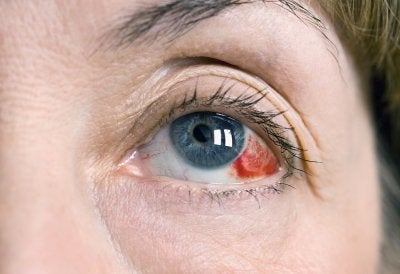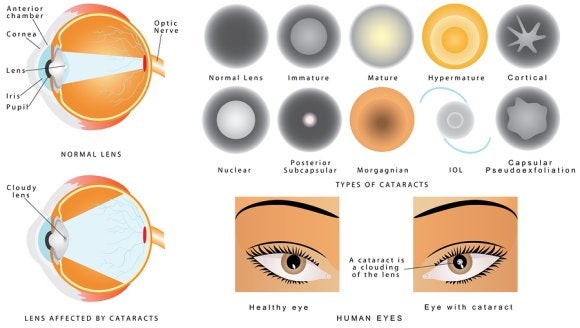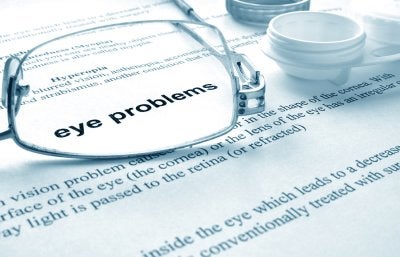-
What to Do to Prevent Eye Injuries
Eye diseases like macular degeneration aren’t the only problems that can rob a person of his or her healthy vision. Injuries to the eye can occur in mere moments, but they can have life-changing consequences. Residents of the Chicago area can get some eye care tips from their ophthalmologist. Even when individuals take precautions to protect their vision, accidents can occur from time to time. If you’ve suffered an eye injury, seek immediate medical attention.

At Work
Work-related eye injuries are entirely too common. When a job exposes employees to hazardous chemicals, airborne debris, and other hazards, employers are supposed to provide proper protective gear, including safety goggles. However, it’s incumbent upon the employee to ensure that he or she follows safety guidelines and wears these goggles as needed. Adequate safety goggles are those that feature side shields. Other protective gear can include face shields , full-face respirators, welding helmets, work screens, and machine guarding. Individuals who wear eye glasses, rather than contact lenses, can consult an eye care professional about getting prescription safety goggles.
At Home
The workplace and the home are the two major places in which eye injuries occur. Eye doctors recommend taking precautions inside and outside the home to protect one’s eyes. Inside the home, some common hazards include cleaning chemicals, grease splatters, certain children’s toys such as projectiles, and tripping hazards. Champagne bottles are another potential hazard. When opening a champagne bottle, always point it at a 45-degree angle away from yourself and everyone else. After you’ve removed the wire hood, place a towel over the entire top of the bottle before twisting the cork out. Outside the home, yard work is often the greatest hazard for eye health. Before mowing the yard, walk over the entire area, removing branches and other potential projectiles. Do not allow children outdoors while mowing or doing other yardwork with power tools. Remember to wear safety goggles.
At the Gym
Thousands of people suffer from sports-related eye injuries each year. Some of those injuries occurred because the patients relied on their regular eye glasses to provide adequate protection. Safety goggles ought to be worn before engaging in certain sports, such as racquetball and basketball.
-
What You Should Know About Glaucoma
Glaucoma is a chronic eye disease that can lead to blindness . It involves damage inflicted on the optic nerve. Although your eye doctor cannot cure glaucoma, he or she can help you learn how to manage it properly. Early detection is critical, so schedule regular eye exams at an optical center in Chicago. Your eye doctor can check for the early warning signs of glaucoma by performing a dilated eye exam, which checks for damage to the optic nerve. The ophthalmologist can also check the pressure in your eye and assess your visual field.
When you visit the optical center, be sure to tell your eye doctor about any changes in your vision. Glaucoma typically causes patients to lose “patches” of vision such as peripheral vision. If you are diagnosed with glaucoma, it’s likely that your ophthalmologist will prescribe medicated eye drops to lower the pressure within your eye and prevent further damage. Some people with glaucoma may need laser surgery to manage intraocular pressure.

-
Protect Your Eyes in the Sun
You probably already know that wearing sunscreen while outdoors can help protect you from skin cancer. But did you know that the ultraviolet (UV) rays from the sun can also damage your eyes? In fact, your eye doctor may be more likely to diagnose you with age-related macular degeneration if you have excessive, unprotected sun exposure. You might also be more likely to undergo cataract surgery at a clinic in Chicago if you neglect to protect your eyes.
Watch this video and consult your eye doctor for some helpful eye care hints. This video recommends wearing sunglasses every time you go outdoors. Look for shades labeled “UV 400” or “100 percent UV protection.” Pair your sunglasses with a hat and recognize that sun damage can occur even on cloudy and winter days.
-
Spotting Eye Problems in Children
Children need to see an ophthalmologist at a much younger age than many parents realize. The American Optometric Association (AOA) recommends scheduling a trip to the ophthalmologist when an infant has reached six months of age. The next visits with an eye doctor should be scheduled at about the third and fifth birthdays. However, if you notice any potential signs of eye problems in your child, you can schedule a comprehensive eye exam with an ophthalmologist in Chicago at any time.
Appearance
Sometimes, eye problems that occur in children involve visible changes. If your child’s eyes appear to be misaligned, a trip to the ophthalmologist is in order. This could be a condition known as strabismus, or crossed eyes, which requires early treatment. Other visible changes to the eyes can include redness, swelling, and crusting. These are possible signs of an eye infection such as conjunctivitis.

Behavior
If your child is nearsighted or farsighted, he or she may display some atypical behaviors. Your child may hold books or pictures unusually close to or far away from his or her head. You might notice that your child frequently rubs his or her eyes, especially while trying to concentrate on something. He or she may consistently sit too close to the TV. Some children might even close or cover one eye while reading or watching TV. This last symptom may indicate a binocular vision problem.
Academic Progress
Many children are diagnosed with nearsightedness after suffering a setback in academic performance. If your child has suddenly begun to receive poor grades or his or her teacher has noted that your child has not been paying attention in class, it could be time to schedule an eye exam. Kids who cannot see well have trouble reading instructions on the chalkboard. They might have trouble using computers or performing close work. In these cases, vision correction via eyeglasses may be all that is needed to get kids back on track in school.
Symptoms
If your child is old enough to articulate the problems he or she is experiencing, then you may hear him or her complain of dizziness, headaches, or nausea after reading or using a computer. These symptoms may indicate refractive errors. If your child experiences other types of vision problems, he or she may complain of having itchy, painful, or burning eyes. Fortunately, an ophthalmologist can help your child see clearly again.
